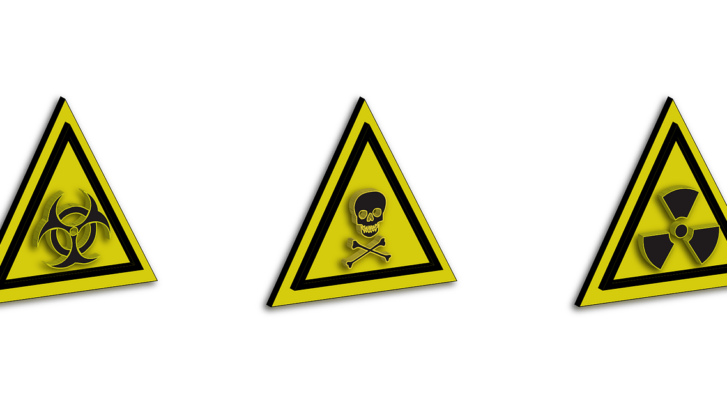Poison Prevention Saves Lives
We tend to think of our homes as our safe place. But according to the American Association of Poison Control Centers (AAPCC), accidental poisoning is the leading cause of injury-type deaths in the U.S., and 92 percent of those occur in the home.
From prescription medications to cleaning supplies, hidden dangers lurk in every corner of our homes.
Which is why our concierge doctors at MD 2.0 in Jupiter, Florida, want to take advantage of National Poison Prevention Week, March 21-27, to highlight ways you can keep yourself and your family safe.
Drugs top the list
The National Safety Council (NSC) reports that accidental drug overdoses are the leading cause of poisoning. In fact, a person’s lifetime risk of death from an accidental opioid overdose is higher than the odds of dying in an auto accident. In 2017, opioid overdoses were the leading cause of death in Americans under the age of 50.
Teens, who are prone to experimenting with household products to get “high,” are also at risk of serious injury or death as a result. And according to research from the Centers for Disease Control and Prevention (CDC), two-thirds of U.S. students have tried alcohol by the 12th grade.
Kids especially at risk
The Consumer Product Safety Commission (CPSC) reports that nine out of 10 poison incidents involving children occur in the home.
The American Academy of Pediatrics (AAP) says that most poisonings occur when parents or caregivers are home but not paying attention to their child. The most likely time for this to happen is when there is a change in the normal household routine: holidays, grandparents’ visits, or a sudden family crisis.
Among the most dangerous potential poisons to children are:
- medicines, both prescription and over-the-counter (OTC)
- cleaning products
- liquid nicotine
- antifreeze
- windshield wiper fluid
- pesticides
- furniture polish
- gasoline, kerosene, and lamp oil
Preventing tragedy
Here are some poison-prevention safety tips from the CDC, the AAPCC, the AAP, and other experts.
Drugs and medicines
- Only take prescription medications that are prescribed to you by a healthcare professional. Misusing or abusing prescription or OTC drugs is not a “safe” alternative to illicit substance abuse.
- Never share or sell your prescription drugs. Keep all prescription medications (especially prescription painkillers, such as those containing methadone, hydrocodone, or oxycodone), OTC drugs (including pain or fever relievers and cough and cold medicines), vitamins, and herbal supplements in a safe place that can only be reached by people who take or give them.
- Keep medicines in their original bottles or containers.
- Follow directions on the label when you give or take medicines. Read all warning labels. Some medicines cannot be taken safely when you take other medicines or drink alcohol.
- Monitor the use of medicines prescribed for children and teenagers, such as medicines for attention deficit hyperactivity disorder, or ADHD.
- Properly dispose of unused, unneeded, or expired prescription drugs.
Household chemicals and carbon monoxide
- Always read the label before using a product that may be poisonous.
- Keep chemical products in their original bottles or containers. Do not use food containers such as cups, bottles, or jars to store chemical products such as cleaning solutions or beauty products.
- Never mix household products together. For example, mixing bleach and ammonia can result in release of toxic gases.
- Turn on the fan and open windows when using chemical products such as household cleaners.
- Keep all gas-powered appliances, furnaces, and coal, wood, or kerosene stoves in safe working order.
- Maintain working smoke and carbon monoxide detectors.
Preventing poisoning in children
- Store medicine, cleaning and laundry products (especially detergent packets), paints, varnishes, and pesticides in their original packaging in locked containers, out of the sight and reach of children. In fact, the AAP recommends not using detergent packets at all until all children in the household are at least six years old.
- Don’t depend on automatic-locking safety latches to keep children away from dangerous products in cabinets. Instead, store poisonous products in places children can’t reach or see.
- Purchase and keep all medicines in containers with safety caps. Note that such caps are designed to be child resistant but are not child proof.
- Never refer to medicine as “candy” or other appealing names.
- Be aware of any legal or illegal drugs that guests may bring into your home. Ask guests to store drugs where children cannot find them. Remember, children can easily get into pillboxes, purses, backpacks, or coat pockets.
- Identify poisonous plants in your house and yard (https://www.cdc.gov/niosh/topics/plants/) and place them out of reach of children and pets or remove them entirely.
If disaster strikes
In the case of accidental poisoning, call 911 or your local emergency number immediately if the victim has collapsed or is not breathing.
If the victim is awake and alert, call the poison help number, 1-800-222-1222, for advice. The line is open 24 hours a day, seven days a week. And put the number on or near every home telephone and save it on your cell phone.
Different types of poisoning require different treatments, so don’t try to guess what actions to take.
Remember, poison prevention is the best strategy. For more information, check the CDC’s poison prevention page, the NSC’s poison prevention guidance, the AAPCC’s website, or the AAP’s Healthy Children initiative.

